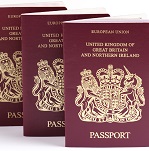 Playing bingo, snacking while sitting on a monument or feeding pigeons may seem innocent enough to many British citizens, but these are just some of the reasons why many people have found themselves faced with hefty fines or in some cases arrested or detained abroad.
Playing bingo, snacking while sitting on a monument or feeding pigeons may seem innocent enough to many British citizens, but these are just some of the reasons why many people have found themselves faced with hefty fines or in some cases arrested or detained abroad.
Every year Brits are caught out by local laws and customs which are commonplace in the UK, some of which carry serious consequences. These could be easily avoided by researching travel destinations in advance and taking note of updates and warnings issued by the Foreign and Commonwealth Office (FCO).
A recent report released by the FCO identified that more than a quarter (27%) of cases requiring consular assistance by the FCO were for arrests or detentions, with a particular increase in the number of cases in Italy, the United Arab Emirates and the Netherlands. In addition to the more unusual laws and customs, alcohol, drug and cigarette laws all vary from country to country so it is vital that British citizens familiarise themselves with these before they travel to ensure they have a safe and enjoyable holiday.
For example, although many people see The Netherlands as having a tolerant approach to so-called ‘soft’ drugs, that only applies in designated areas. Away from there the possession or buying of drugs carries heavy penalties. Similarly, it is illegal to take some commonly available nasal sprays containing pseudoephedrine into Japan and taking more than 200 cigarettes into Thailand can result in a large fine and confiscation.
Even in countries we see as similar to the UK laws can vary, with local regulations further complicating matters.
In Italy, for instance, it is illegal to feed the pigeons in Venice while in Florence it is an offence to sit on steps and courtyards or to eat and drink in the immediate vicinity of churches and public buildings.
More serious issues arise when religious security matters are involved. In Saudi Arabia, photographing government buildings, military installations and palaces is prohibited and can lead to arrest and detention, while in The Maldives, the public observance of religions other than Islam is prohibited for non-Maldivians and visitors.
Charles Hay, Director of Consular Services at the FCO, said: “Every year British nationals find themselves on the wrong side of the law unexpectedly, resulting in fines or in some cases arrests or even jail sentences. It is important to remember that laws and customs can vary greatly from country to country and what may be perfectly legal in the UK could be subject to a fine or even a jail sentence in another.
“Consular staff often find that travellers are unaware that local laws apply to them and many British nationals think of their British passport as a ‘get out of jail free’ card. While consular staff will always try to assist British nationals who find themselves in difficulty abroad, we can’t interfere in another country’s legal processes.
“We want Brits to have a great time when they travel abroad so it is also a good idea to research the country they are visiting before they travel. Country specific laws and customs can be found at our travel advice page.”
The FCO has a new Twitter service @FCOtravel to answer enquires for consular staff. That is in addition to existing email contacts or local consular staff.


